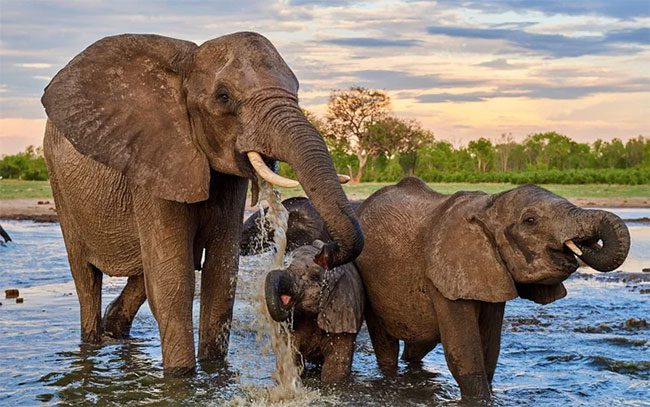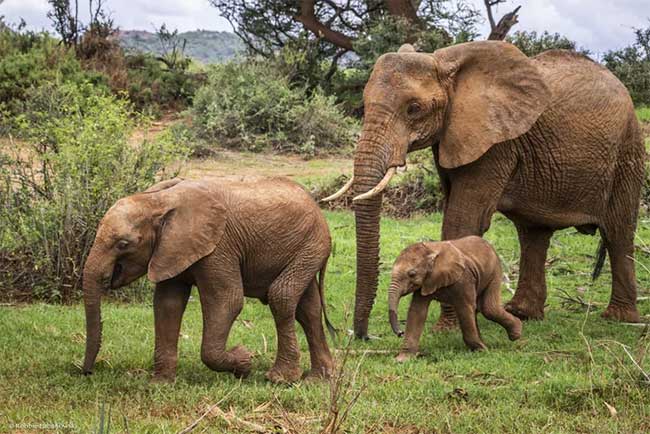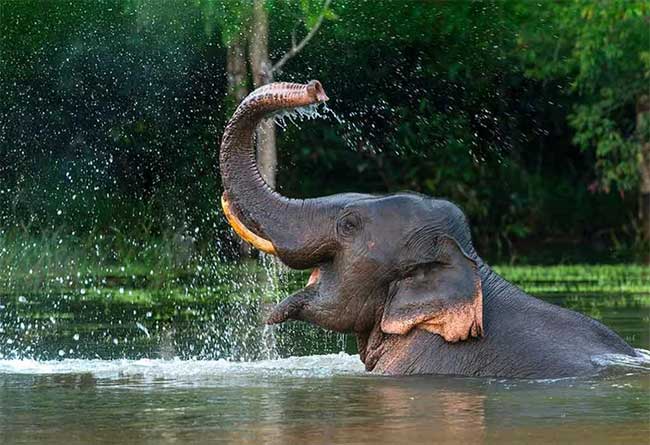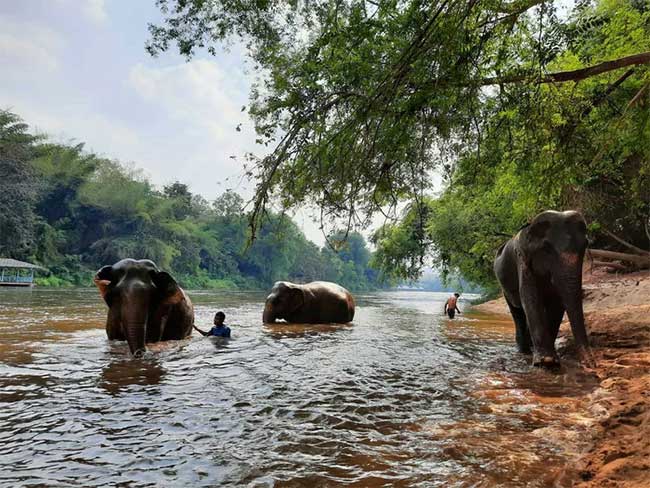According to new research, tropical forest elephants may have “profound” effects on forest ecosystems – and could provide solutions to help humans combat climate change.
A study published in the Proceedings of the National Academy of Sciences of the United States of America indicates that Fabio Berzaghi – the lead author of the study and a researcher at the World Maritime University in Sweden, stated: “These results reinforce our understanding that if we want nature to help us mitigate climate change, we need a complete ecosystem from insects and trees to large animal species.”
The researchers propose a hypothesis: due to their foraging behavior and subsequent seed dispersal, these animals may significantly contribute to carbon storage in forests.
To test this hypothesis, scientists analyzed forest inventories and feeding data from Nouabalé-Ndoki National Park in the Republic of Congo and LuiKotale – near Salonga National Park – in the Democratic Republic of the Congo.
Based on the collected data, the researchers were able to identify the mechanisms driving the elephants’ foraging behavior and quantify their impact on carbon storage in the forests where they live.

How elephants forage can significantly contribute to carbon storage in forests.
It turns out that the scientists’ intuition was correct: elephants are directly impacting carbon storage through their foraging behavior.
From their data analysis, the scientists drew two main conclusions.
Firstly: elephants prefer to chew leaves from tree species with low wood density. These leaves are higher in protein and lower in fiber, making them more palatable to large herbivores.
Berzaghi remarked: “I was truly surprised to see that among the hundreds of species present in the forest, elephants make intentional choices about the types of trees they consume, and this is due to the palatability and nutritional value of the leaves.”
Secondly: elephants prefer to eat fruits from trees with high wood density due to their high sugar content, which ultimately leads to elephants planting seeds for these trees.
The researchers wrote: “Forest elephants are extraordinary seed dispersers; they can transport more seeds of more species than any other animal.”
In other words: the elephants’ selective feeding habits directly influence the types of leaves and fruits they consume. The result of these two simple actions is that elephants directly contribute to the existence and spread of denser, carbon-storing trees.

Forest elephants are extraordinary seed dispersers.
The notion that elephants could help solve the climate change problem by eating trees seems counterintuitive, but the researchers’ findings clarify the relationship between this seemingly destructive behavior and its positive outcomes for the climate.
In fact: by eating lower-density trees, elephants mitigate overcrowding and promote the growth of larger trees that will ultimately “sequester” or store more carbon.
Berzaghi stated: “I think for most people, linking elephants or other animals to carbon absorption is not straightforward, but it will become more intuitive once the mechanisms are explained.”
By helping to store carbon in forests, elephants prevent carbon from being released into the atmosphere. Carbon dioxide is a major contributor to global warming.

Elephants help prevent carbon from being released into the atmosphere.
The findings confirm that elephants are “ecosystem engineers” on par with beavers and other organisms that shape their environment through their daily habits. The researchers indicated they want the contribution of forest elephants to be recognized in policy discussions surrounding nature-based solutions to climate change in Africa.
However, elephants face increasing threats to their survival from human development to poaching. The message from the researchers is clear: we must protect elephants if we want to preserve forest biodiversity and avert the climate crisis.
The researchers concluded: “Protecting forest elephants, including those in logging concessions and other exploited forests, is an extremely important response to mitigate the impact of wildlife on climate change.”

We must protect elephants to preserve forest biodiversity and combat climate change.
Berzaghi is a member of a group of researchers called “Creating Impact for the Carbon Cycle.”
The group’s goal is to integrate wildlife conservation into nature-based climate change solutions. The findings suggest that other large herbivores – such as Asian elephants and even tapirs – may also contribute to the development of high carbon-storing trees in their respective forest ecosystems.
Berzaghi concluded: “Animals are part of the solution; in the case of elephants, protecting forest elephants will be related to protecting African forests and all the other species within them.”


















































